Ramón Bilbao joins exclusive club as it celebrates centenary
By Michael HubandMichael Huband headed to Rioja for Ramón Bilbao’s anniversary bash. Recovered from the partying, he asks what the last 100 years say about its future path.
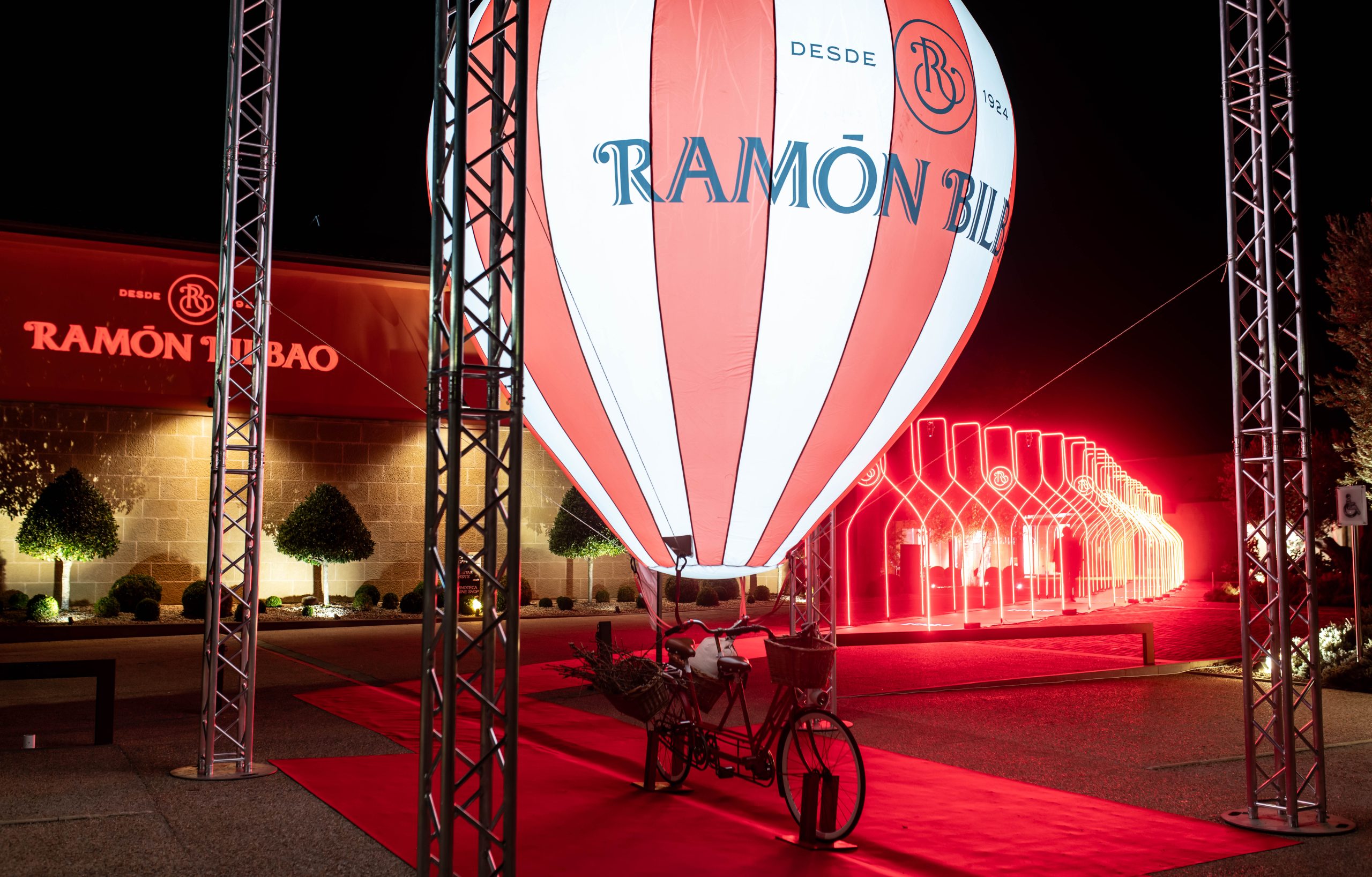
How do you celebrate a 100th birthday? It is a question that not many have to contemplate. Reaching a centenary is a rare combination of sensible decisions, joie-de-vivre and good fortune. Yet there are certain obvious items you might tick off in planning such a birthday bash. You should gather friends, family and colleagues. You should ensure there is plenty of food, music and dancing. Perhaps, in a quieter moment, you should reflect on the significance of such a rare occasion.
Companies may not have to worry about cholesterol intake or staying active, but there is no guarantee they will reach such a milestone. Weathering a century in business is a tall order. That is particularly true in Spain, which has seen a turbulent period of its history over the last 100 years. Yet Ramón Bilbao, the Rioja winery that reached the milestone this year, has thrived for more than 100 years. And it gave a fine lesson in how to celebrate.
Friends, family and colleagues? Check. Attending the celebrations with the Zamora family (the winery’s owners) were colleagues who have worked at Ramón Bilbao for decades, and dear friends from around the world. In a truly global celebration, many of those friends came from other prestigious centenary wineries, with some of the most impressive names in the wine world travelling to Haro to offer their best wishes on the signifiant milestone.
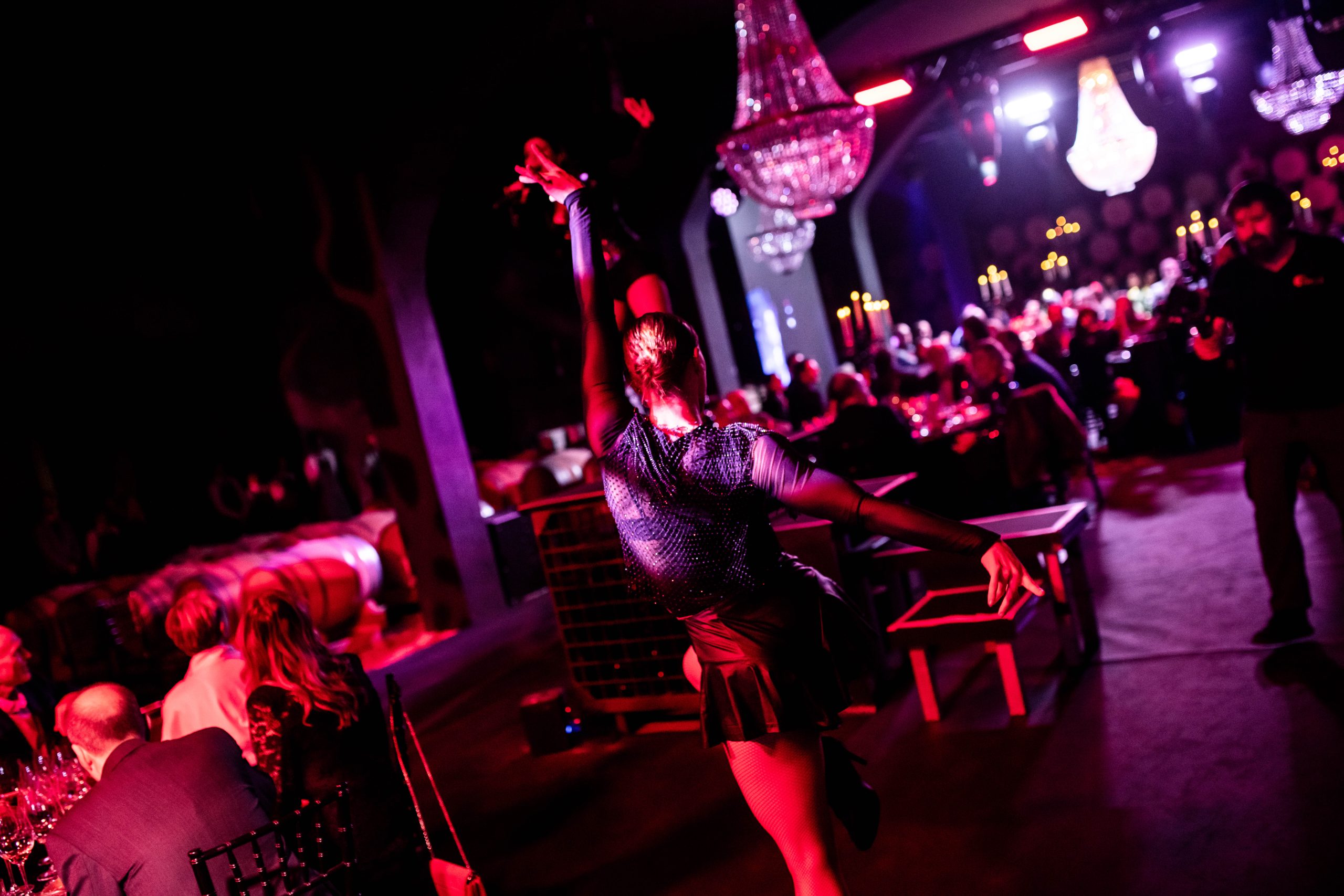
Food, music and dancing? Check. A gala dinner showcased the range of Ramón Bilbao’s portfolio, and its potential in fine dining. The food, from Michelin-starred restaurant Venta Moncalvillo, offered a perfect counterpoint to the wines. Afterwards, partygoers chatted, laughed and danced in front of an ‘RB’-branded DJ booth. Reflecting on the significance? Check. Alongside the festivities, the winery considered its privileged position and its commitments for the future. The finals of Ramón Bilbao’s Spanish Wine Master competition highlighted future stars who are set to promote Spanish wine around the globe. A panel discussion and tasting, meanwhile, brought together icons of the wine world to reflect on future challenges for the industry.
It was a packed, joyful two-day schedule. Yet it also said a lot about the secret to Ramón Bilbao’s longevity, as well as how it intends to persevere for centuries to come.
True to its roots
From the very beginning, there have been recognisable hallmarks to Ramón Bilbao’s production. Its approach has long been to value curiosity and an entrepreneurial spirit, while its practice is firmly rooted in family and friendship.
The producer ’s founder, Don Ramón, exhibited plenty of curiosity. Although a serial entrepreneur, he held steady to his aim of creating a wine brand. This involved a series of moves, from café work to grain warehousing to owning vineyards, before he could eventually launch his eponymous wine. In 1924, Ramón Bilbao was registered as a trademark in its home town of Haro.
Don Ramón only saw five vintages, but on his death the winery passed to his son, and then to his grandson. It stayed in the family until 1966; after this, its future was secured as a public limited company.
The family ethos, however, remained in the company, and saw an unambiguous return when The Zamora Company took ownership in 1999. As a family business, it returned Ramón Bilbao to its roots, and prioritised close personal ties. It is no coincidence indeed that 1999 also saw Ramón Bilbao’s winemaker, Rodolfo Bastida, join the company. He has since been an invaluable “part of the family”.
“Loyalty is the attribute that defines the gentleman on my right. He has been working with us since the very beginning,” said Emilio Restoy Cabrera, general manager of Zamora Company, as he introduced a gala dinner for the centenary. When Bastida joined the company, “it was love at first sight”. As well as forming part of the close team, Bastida has honoured Don Ramón’s legacy. He has pioneered imaginative, curious work at the winery that goes far beyond the archetypes of Rioja. Alongside a well-regarded core range, he has pushed the winery to create bespoke, unusual bottlings. These include monovarietal bottlings, high-altitude selections, wines aged in concrete tanks and Lalomba, Ramón Bilbao’s range of single-vineyard wines.
Joining the ranks
Operating for a century is an impressive feat, and puts Ramón Bilbao in the company of some of the world’s most respected producers. Indeed, serving as an indication of the esteem in which Ramón Bilbao is held, several of these producers collaborated with it for the company’s centenary.
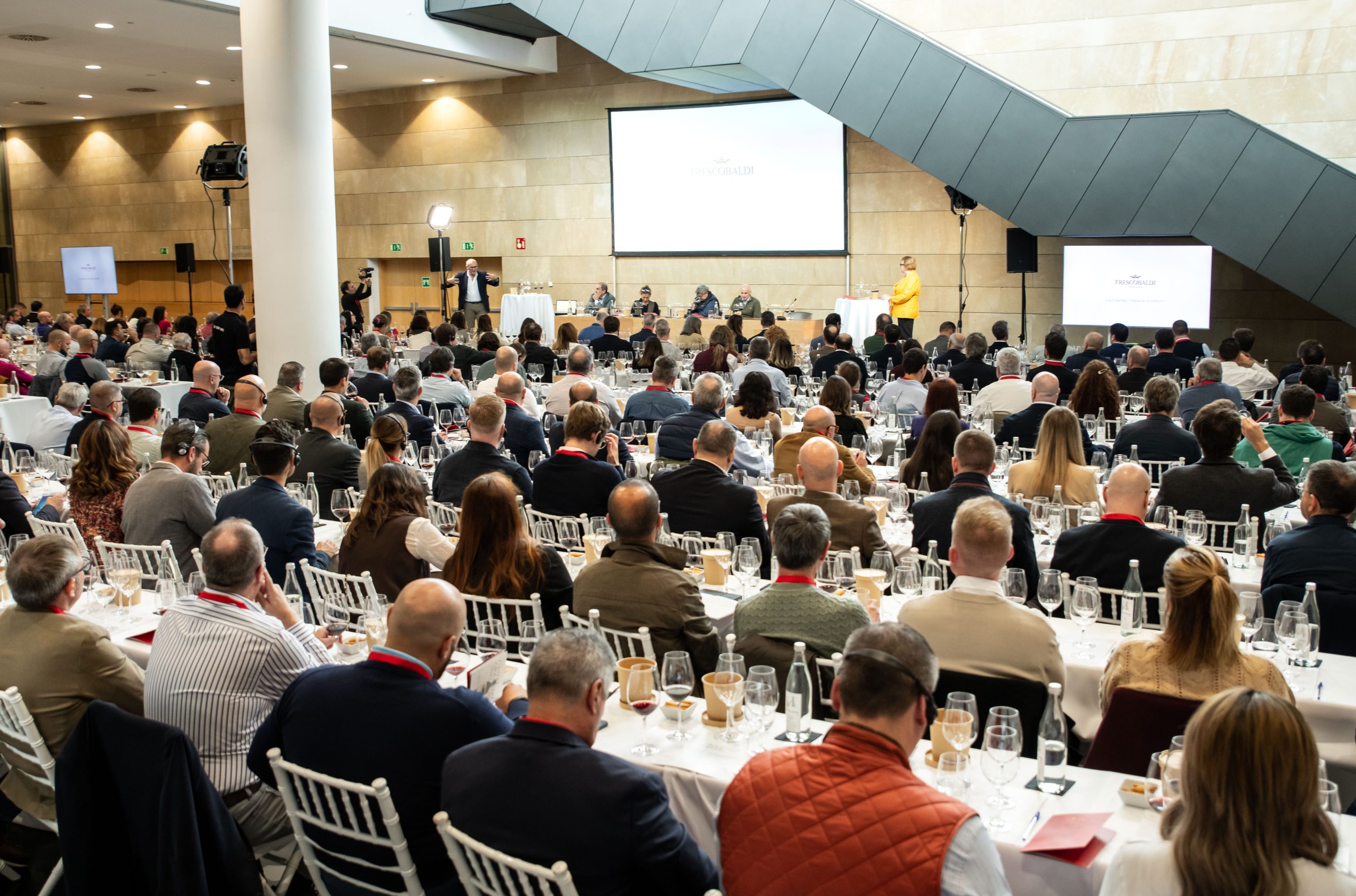
Guests in Rioja enjoyed an enviable tasting of wines from producers with at least a century behind them. Frescobaldi, Château Palmer, Niepoort and Catena Zapata all provided bottles to demonstrate the quality that ensures longevity, no matter the country or variety. The tasting concluded with Ramón Bilbao’s own top bottling: Mirto, a wine only made in Rioja’s best vintages, from 1999.
Yet these renowned companies participated in far more than an exclusive tasting. Ramón Bilbao invited them to reflect on their histories and futures in a panel discussion chaired by Sarah Jane Evans MW and Pedro Ballesteros Torres MW.
“We all feel like we are a link in a long chain,” said historian and winemaker Adrianna Catena. “You have to ask what you have to contribute. I have to ask myself that every day.”
The participating winemakers discussed their journeys in that chain, balancing respect for tradition with a need to innovate. Sometimes, they reasoned, it was necessary to be radical, such as in Ramón Bilbao’s and Catena Zapata’s move to high altitudes, or Château Palmer ’s switch to biodynamic farming. The evidence seemed to suggest that longevity needed the occasional risk.
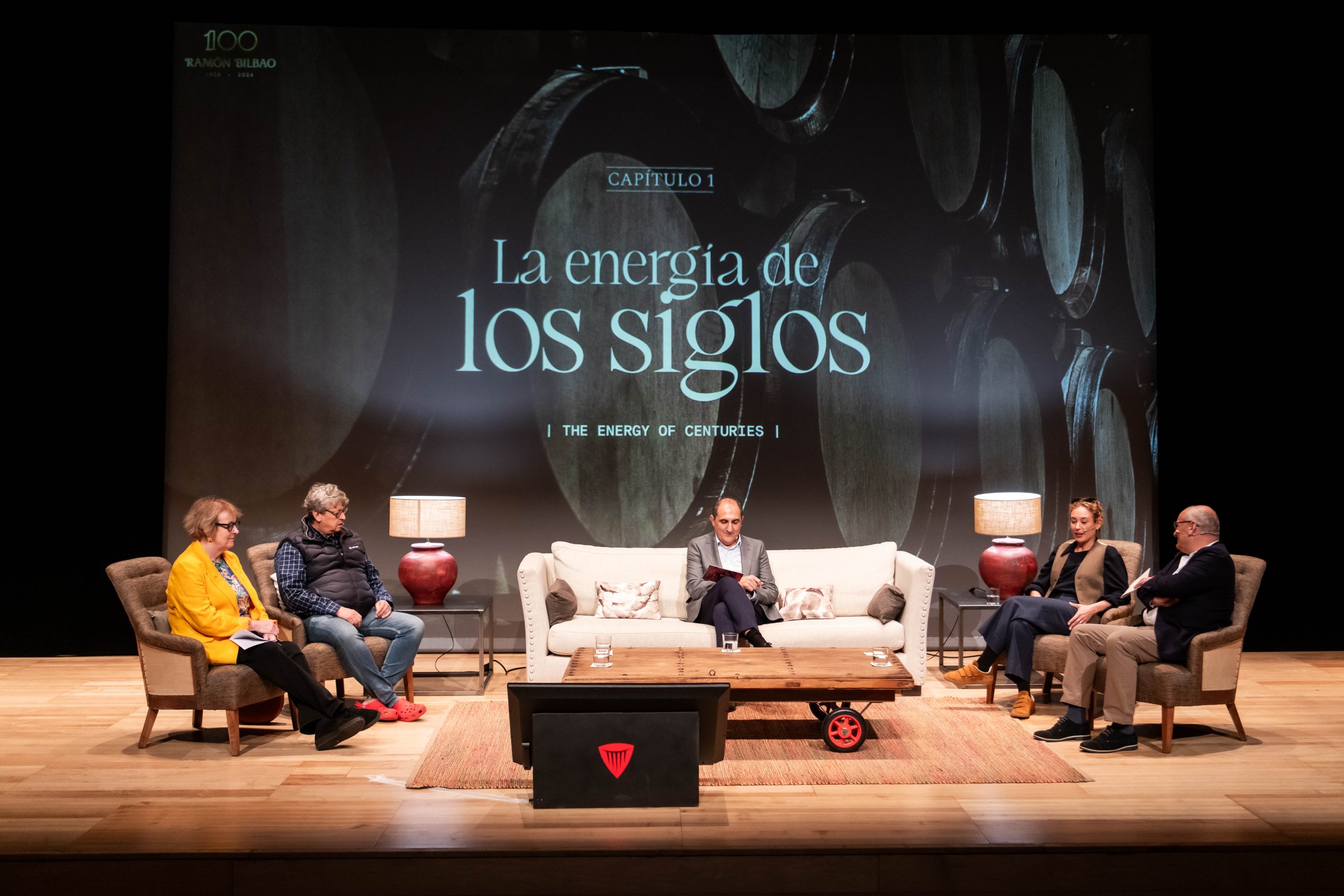
A bolder approach was also suggested in addressing arguably the biggest challenge facing wineries today: climate change. Dirk Niepoort advocated decisive steps: “Maybe it’s not so difficult to face climate change. We just need to do it.” He continued: “We could always start by planting things in the right places.”
Yet Bastida also highlighted that, with a long-term perspective, every decision becomes weightier. “Every time we plant,” he reasoned, “we have to be truly responsible because that vineyard is a factory for the next 50 to 70 years.” Reaching a centenary is a cause for celebration but also, it seems, a reminder of duty.
The next generation
There was no indication, across the days of celebration, that Bastida (or indeed any of the Ramón Bilbao team) would be handing over the reins soon. The winemaker had, in fact, crafted two wines exclusively for the occasion. One, a 2001 gran reserva, marked a revered vintage early in his career at Ramón Bilbao. The other, a 2015 Garnacha aged in concrete tanks, demonstrated the modern face of Rioja, both in style and technology. No sign, on the basis of that contemporary approach, that he is slowing down.
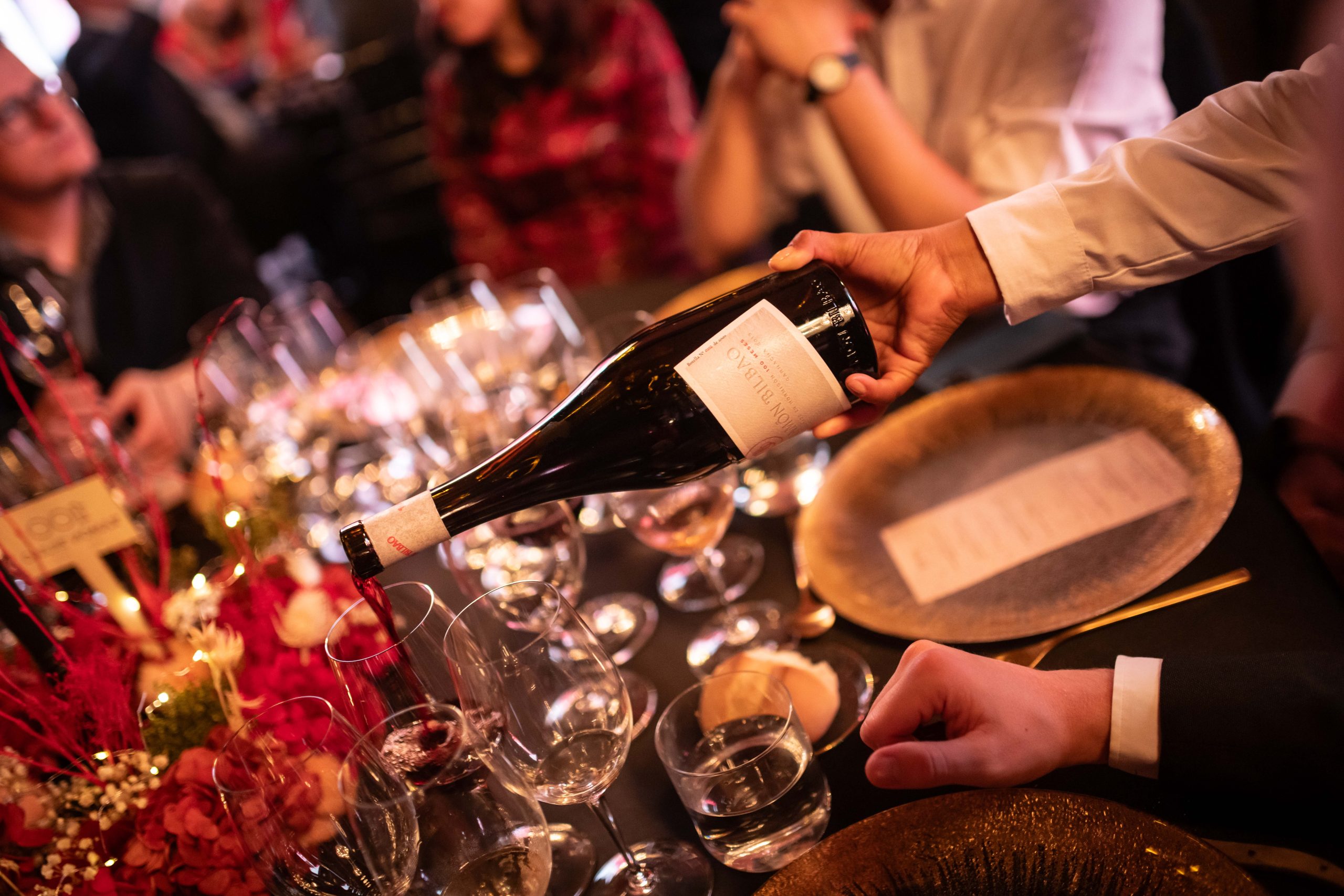
Yet the event did demonstrate that Ramón Bilbao is looking forward to the future and setting the stage for the next generation. This was particularly evident in the international final of its Spanish Wine Master competition.
Six finalists from three continents competed over the two days. The search to find an international expert on Spanish wine was completely open, but resulted in a young cohort who could well become leaders in the field. Some of them did not even work in wine as a primary career.
Although there had to be a winner – Alberto Ruffoni, representing Spain – each demonstrated significant expertise. Moreover, they were provided with the opportunity to further their own knowledge of Spanish wine by making their own expression. Working in the Ramón Bilbao cellars, they have been crafting their own interpretations of Rioja, including oak-aged rosado, a terroir-focused Garnacha and even an on-trend orange wine.
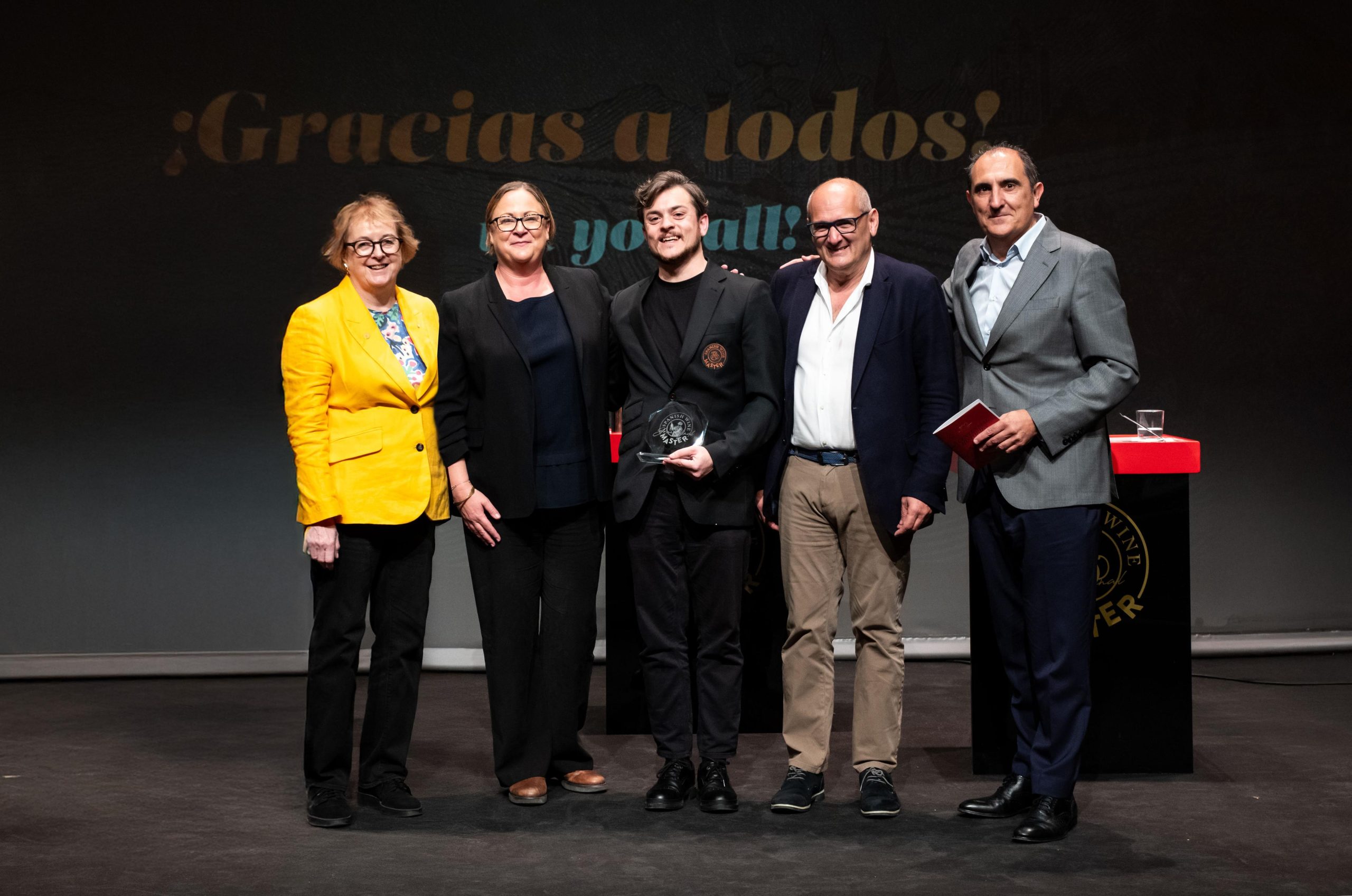
That kind of nurturing mirrors an increased appreciation at Ramón Bilbao for safeguarding its future, and indeed the future of Spanish wine, with sustainability now central to its ethos. The winery has already hit key targets in following responsible winemaking principles. It has, for instance, made its bottles lighter to reduce carbon emissions, and its winery now uses 100% renewable energy. As a member of Wineries for Climate Protection, Ramón Bilbao has committed itself to further sustainability initiatives. The collective action also keeps it accountable, maximising its impact in the region and beyond.
Everything seems to indicate that Ramón Bilbao is in it for the long haul. A centenary may be the perfect time to celebrate past achievements, but the spirit of curiosity that has powered the winery for the last 100 years is now turned to the future. Who knows how Ramón Bilbao might celebrate its 200th anniversary?

Related news
Should Rioja increase its focus on white wine?
The 'family spirit' behind Champagne Gardet's 130th anniversary
